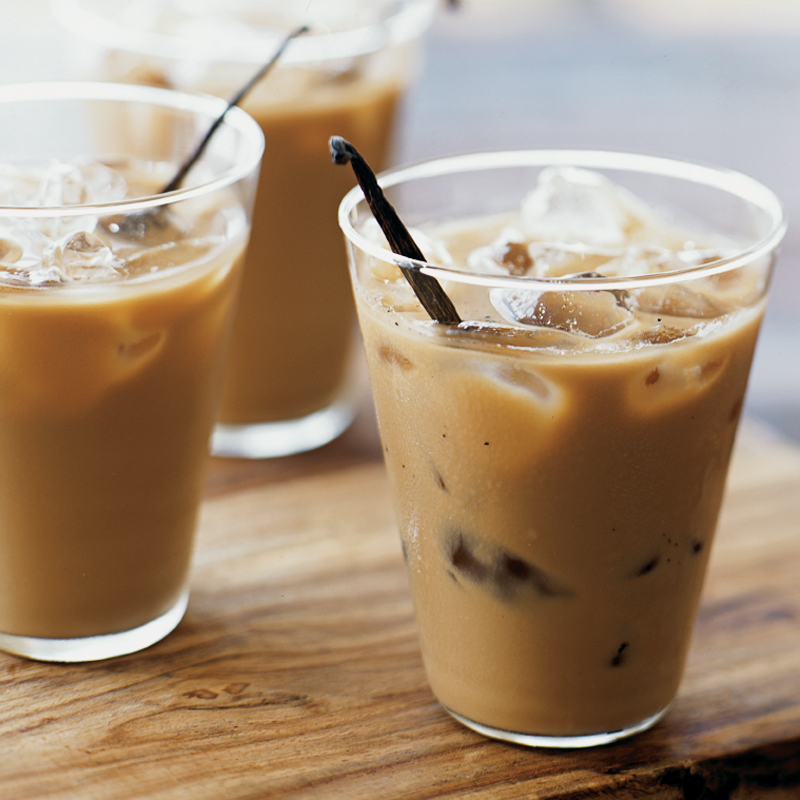Why?Fair Trade Coffee Matters for The Environment

You’ve probably heard all about the cost of coffee when it comes to your bottom line: Hitting up coffee shops costs many of us $11 (or more!) per week. That obviously adds up. Beyond that, though, there are a few other things we all need to consider when it comes to our daily coffee habit. Specifically, the impact your beans have on the environment, the conditions for the workers, how the coffee gets from field to cup, and so on. Our point: Whether you’re making it at home or paying a barista to do it, you should be looking for Fair Trade coffee.
In honor of Earth Day, we decided to take a deeper look at Fair Trade coffee. We went straight to the source and chatted with?Abby Ayers, the?Senior Business Development Manager of Retail Partnerships at?Fair Trade USA, a nonprofit that certifies and promotes Fair Trade products like coffee, chocolate and sugar.
Keep reading to better understand why your coffee choice is so important.
First, What is Fair Trade Coffee?
The idea of Fair Trade products grew out of a grassroots movement to promote items made by small, independent producers around the world. Shoppers wanted more sustainability and transparency surrounding the things they were buying. They wanted to know where their products were coming from, what the working conditions were like, how manufacturing processes were impacting the environment, and more.
What does that mean in terms of coffee? “When a coffee is Fair Trade Certified it means that the coffee was produced against rigorous standards that protect the environment, empower producers, and support local communities,” explains Ayers. “Our system not only sets rigorous standards that protect the environment and provide safe working conditionsit also empowers producers to make choices for the good of themselves and their community.”
Fair Trade Certified coffee benefits everyone in the supply chain, Ayers adds. “Farmers and workers gain access to sustainable livelihoods, brands can offer quality products, retailers can manage risk and become leaders in the industry, and consumers can shop their values and trust in the brands they purchase.”
RECIPE: Vanilla Bean Iced Coffee

How Fair Trade Coffee Benefits the Environment
In order to really understand the environmental impacts, we should talk about what happens when you buy coffee that’s NOT Fair Trade. When you buy conventional coffee, it comes with a risk that the workers and the environments could have been exploited.?“Issues common to non-Fair Trade farms include water pollution, deforestation, use of GMOs and harmful pesticides, as well as forced/child labor,”?Ayers warns. “Workers have minimal rights on non-Fair Trade farms, lack facilities and basic resources, and are often exposed to harmful chemicals.”
On a Fair Trader farm, however, certain standards must be met. When you buy Fair Trade Certified coffee, you get coffee grown with biodiversity, conservation, and sustainability in mind. “Fair Trade enforces standards that ensure water is used efficiently, there is no deforestation, and farmers enhance on-farm biodiversity.”
How Fair Trade Coffee Benefits the Workers
Unlike producers of commodities like oil and natural gas, coffee farmers only receive a small fraction of the retail price of their crop.?And now, with global coffee prices down to their lowest in nearly 13 years, many farmers feel the pinch. (Yes, even though you, the consumer, probably haven’t seen lower prices.) But the Fair Trade farmers have protection.?“Coffee prices are volatile and traditional trade threatens the livelihoods of farmers and workers who are unable to cover their production costs,” says Ayers. See, there’s a minimum price guaranteed to Fair Trade farmerseven when commodity prices fluctuate. “This minimum price allows farmers to invest in trainings and resources to further care for the land and the environment.”?The systems created through Fair Trade allow producers to continue to offer quality coffee, while also supporting their families and communities.
Plus, for every pound of Fair Trade coffee sold, producers get 20 cents back, which they can then invest in community development initiatives. And members vote to decide how to put that money to use, which means everyone has a voice.
How Fair Trade Coffee Benefits You
For starters, some coffee connoisseurs swear that Fair Trade coffee taste better than regular coffee.? It also gives you a chance to vote with your dollars. “When consumers purchase Fair Trade Certified coffee, they can trust that their coffee is making a positive impact on both the environment and the communities from which it came,”?Ayers promises.
To find Fair Trade coffee, simply look for the Fair Trade Certified seal. You can also search on Fair Trade USA’s?website or shop our coffee collection at Williams Sonoma.

